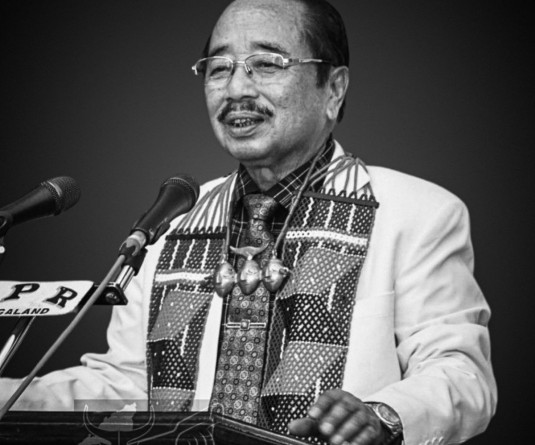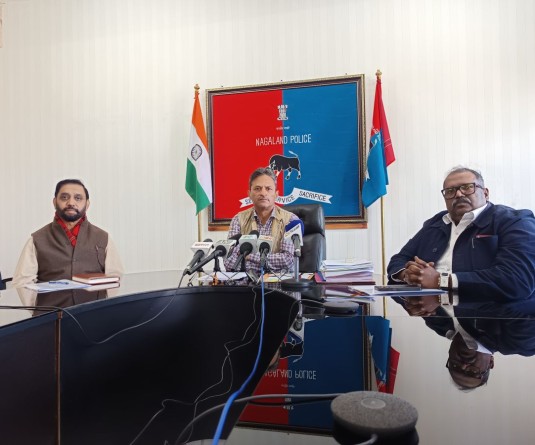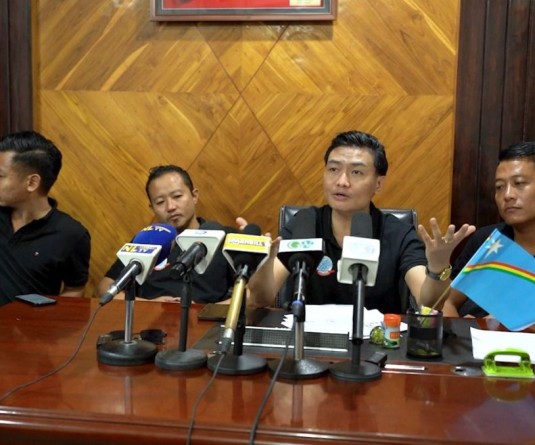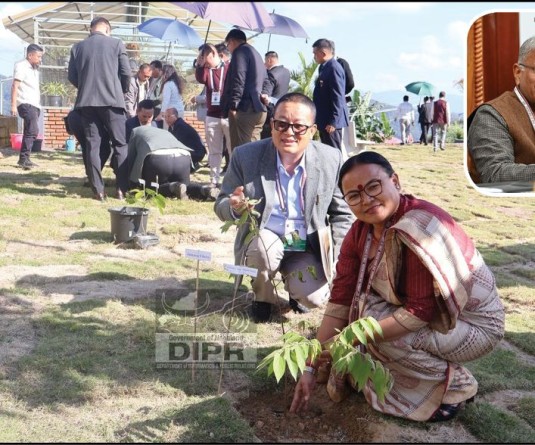
NEA suggests creation of State Institute of Communitization
Our Correspondent
Kohima | November 11
The need to review the Nagaland Communitization Act was stressed on during the observance of National Education Day here under the aegis of Nagaland Education Association (NEA) in collaboration with the Directorate of School Education Nagaland.
The concept of communitization was introduced in 2002-03 and after enactment of Nagaland Communitization Act on public institutions and services the same year, the government in phases handed over ownership and management of education, health care, water supply, electricity, tourism and bio-diversity conservation to the communities.
Speaking during the occasion as special invitee, School Education & SCERT Principal Secretary, Menukhol John said that the department is on the job for reviewing communitization in the education sector as it requires some changes.
He said that department is going to set up a commission soon to look into the working dynamics of communitization.
Also speaking during the occasion, School Education Principal Director, Shanavas C maintained that communitization is a good initiative. However, he noted that time has come to modify the process “so that we get good fruit out of it.”
Meanwhile, the Principal Director expressed disappointment at certain village councils protecting absentee or proxy teachers. He asserted that such practices need to be stopped.
Nagaland Education Association (NEA) President, Dr. Zavise Rume said that Nagaland was the first in India to conceptualize, legislate and implement the Communitisation of Elementary School Education, adding that communitisation of school education has gained its recognition at the international level.
He informed that India was awarded with the UNO Award for the Nagaland Education Communitisation Policy.
Dr. Rume said “communitization of education is our heritage. We worked so hard for it and now we must nurture, preserve and promote it. The world must come to Nagaland to study Commuinitisation system of education. Communitization must earn Nagaland international attention and attract international students and researchers communities to invest resources from across the world.”
He noted that scholars from across the country are doing research study on communitization and many state governments in India have also visited Nagaland to study the system of communitization of school education in the state.
The NEA president also stressed on the need to create a State Institute of Communitization in order to generate and accelerate manpower resources, while promoting research and training, so as to sustain communitization as a system of education in the state.
“We must explore centrally sponsored schemes and international financing agencies to come to our aid so as to enable us to translate this dream into a reality. We must also review this policy to give more powers to the education field officers so as to strengthen the system,” he said.
“Everyone is equally important in making the education system more effective and dynamic,” said School Education Director, Wongthongo Tsopoe. He further challenged all involved in the education sector to eradicate the system of proxy and absenteeism among teachers in the state.






